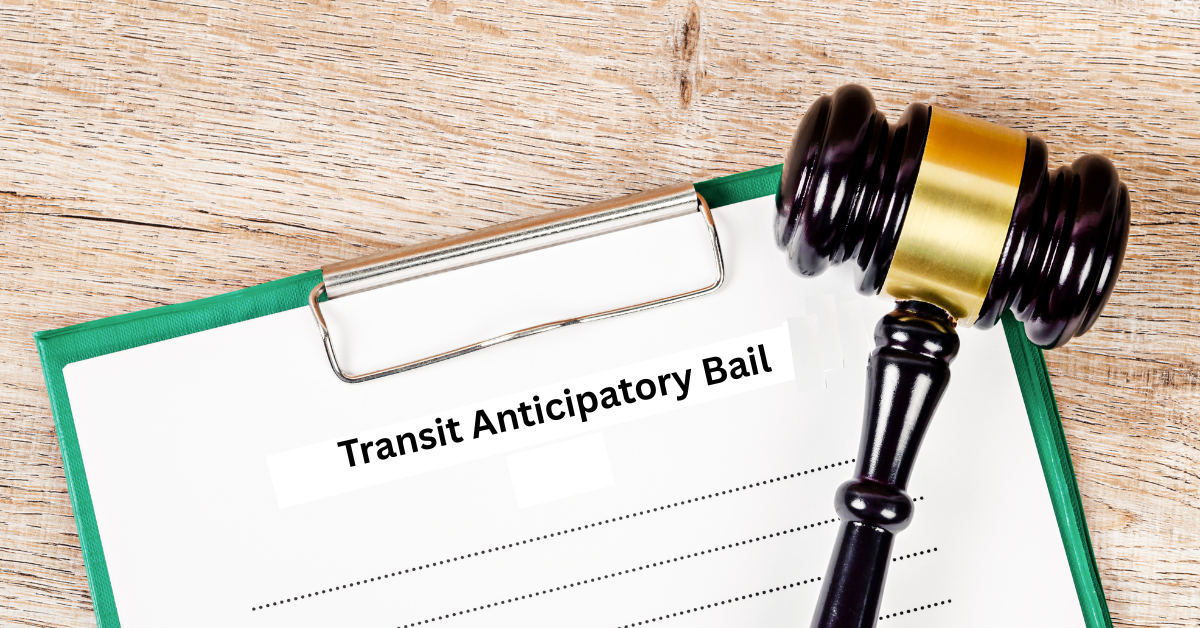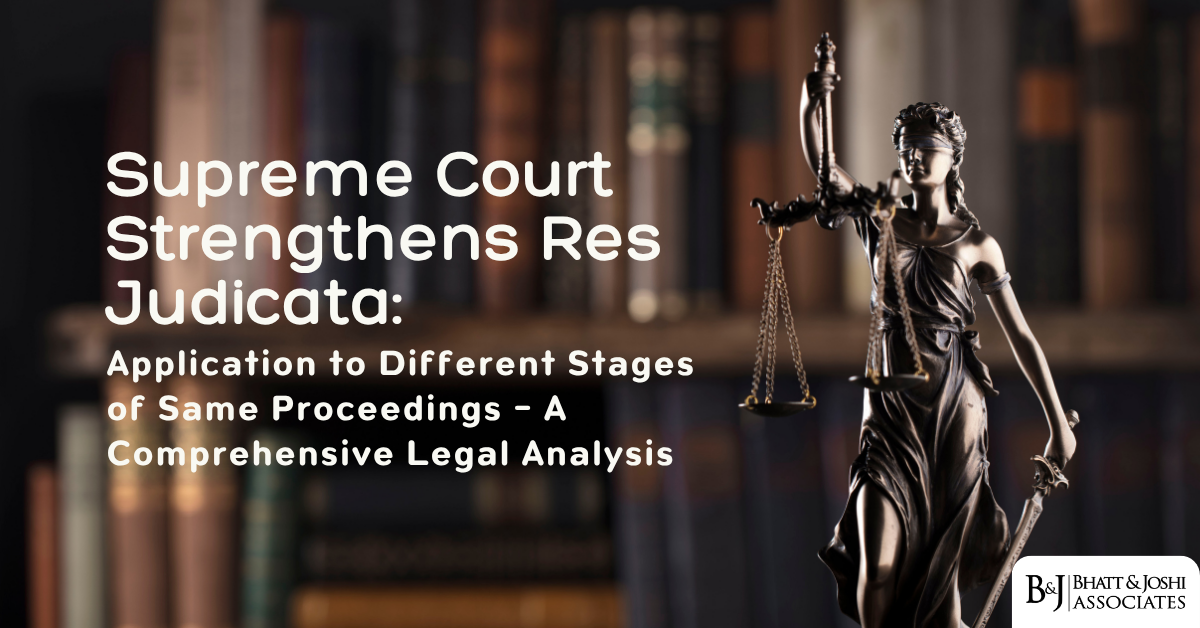Introduction
The concept of Transit Anticipatory Bail has emerged as one of the most significant developments in Indian criminal jurisprudence, representing a judicial innovation that bridges the gap between statutory provisions and constitutional imperatives. The Supreme Court’s landmark judgment in Priya Indoria v. State of Karnataka (2023)[1] definitively established that High Courts and Sessions Courts possess the authority to grant anticipatory bail even when the First Information Report (FIR) is registered in a different state. This legal doctrine, while not explicitly codified in the Code of Criminal Procedure, 1973 (CrPC), has evolved through progressive judicial interpretation to safeguard personal liberty while maintaining the integrity of territorial jurisdiction principles.
Transit Anticipatory Bail represents a sophisticated balancing act between an individual’s fundamental right to personal liberty under Article 21 of the Constitution and the state’s legitimate interest in effective criminal investigation[2]. The doctrine acknowledges the practical realities of modern life, where individuals frequently traverse state boundaries for legitimate purposes and may find themselves vulnerable to arrest in jurisdictions far from their place of residence.
The recent judicial developments have crystallized the legal position, with the Supreme Court recognizing that denying transit anticipatory bail solely on grounds of territorial jurisdiction would add restrictions to the powers under Section 438, potentially resulting in miscarriage of justice[3]. This comprehensive analysis examines the statutory framework, constitutional foundations, judicial precedents, and practical applications of Transit Anticipatory Bail in contemporary Indian jurisprudence.

Historical Evolution and Legislative Background
Origins in the 41st Law Commission Report
The conceptual foundation for anticipatory bail traces back to the 41st Law Commission Report of 1969, which recognized the growing need for protection against false cases motivated by personal or business vengeance[4]. The Commission observed instances where prominent individuals were falsely implicated by political rivals to humiliate and harass them through arrest and detention. This recommendation led to the incorporation of Section 438 in the Code of Criminal Procedure, 1973, providing for “Direction for grant of bail to person apprehending arrest”[5].
Evolution Through Judicial Interpretation
The concept of Transit Anticipatory Bail emerged through progressive judicial interpretation rather than explicit legislative enactment[6]. Prior to the landmark Priya Indoria judgment, various High Courts had developed divergent approaches to extraterritorial anticipatory bail applications. The Bombay High Court, in particular, played a pioneering role in recognizing jurisdictional flexibility in cases where applicants faced arrest in territories different from where the alleged offences occurred[7].
Constitutional Underpinnings
The constitutional foundation for Transit Anticipatory Bail derives from Article 21 of the Constitution, which guarantees the right to life and personal liberty[8]. The Supreme Court has consistently held that Section 438 and Article 21 are intrinsically linked, with anticipatory bail provisions upholding fundamental rights of citizens who have not been convicted of any offence. The doctrine of access to justice, recognized as a facet of Article 21, provides additional constitutional support for extraterritorial anticipatory bail applications[2].
Statutory Framework: Section 438 CrPC
Textual Analysis of Section 438
Section 438(1) of the CrPC provides the foundational text for anticipatory bail: “Where any person has reason to believe that he may be arrested on an accusation of having committed a non-bailable offence, he may apply to the High Court or the Court of Session for a direction under this section that in the event of such arrest he shall be released on bail”[5]. The provision requires courts to consider multiple factors including the nature and gravity of the accusation, the antecedents of the applicant, the possibility of flight from justice, and whether the accusation was made with malicious intent to injure or humiliate the applicant[4].
Amendments and Restrictions
The provision has undergone significant amendments, particularly in 2005 and 2018. The 2018 amendment introduced Section 438(4), which excludes anticipatory bail for certain sexual offences, including rape of women under specific age categories[9]. These restrictions apply equally to Transit Anticipatory Bail applications, ensuring that serious sexual offences remain outside the scope of pre-arrest bail protection[10].
Jurisdictional Interpretations
The Supreme Court’s interpretation in Priya Indoria clarified that the expression “High Court” or “Court of Session” in Section 438 is not restricted to specific local limits or territorial jurisdiction[1]. This interpretation enables courts to exercise extraterritorial jurisdiction in exceptional circumstances, provided appropriate safeguards are implemented to prevent abuse and forum shopping[3].
The Landmark Priya Indoria Judgment (2023)
Facts and Legal Issues
The Priya Indoria case involved a matrimonial dispute where the complainant-wife lodged an FIR in Rajasthan alleging offences under Sections 498-A, 406, and 323 of the Indian Penal Code, while the accused-husband sought anticipatory bail from a Bengaluru court[1]. The case presented two critical legal questions: whether courts could exercise anticipatory bail powers for FIRs registered outside their territorial jurisdiction, and whether granting transit anticipatory bail is consistent with criminal justice administration principles[11].
Supreme Court’s Reasoning
The Supreme Court, through Justice B.V. Nagarathna and Justice Ujjal Bhuyan, held that High Courts and Sessions Courts possess the power to grant interim/transit anticipatory bail even when FIRs are registered in different states[1]. The Court observed that such interpretation promotes access to justice and prevents miscarriage of justice, particularly in cases involving genuine apprehension of arrest during inter-state travel[3].
The judgment emphasized the constitutional imperative of protecting citizens’ right to life and personal liberty, noting that anticipatory bail and transit anticipatory bail are intrinsically linked to Article 21 protections[8]. The Court recognized that in an increasingly mobile society, individuals may commit offences in one state while residing in another, necessitating interim protection during transit to approach competent courts[2].
Conditions and Safeguards Established
The Supreme Court established comprehensive conditions for granting Transit Anticipatory Bail to prevent abuse and maintain jurisdictional integrity[11]. These conditions include mandatory notice to investigating officers and public prosecutors on the first hearing date, recording specific reasons for the applicant’s fear of inter-state arrest, and ensuring that state amendments to Section 438 do not exclude offences from anticipatory bail jurisdiction[8].
The Court emphasized that applicants must demonstrate their inability to seek anticipatory bail from jurisdictional courts, citing reasons such as immediate threats to life, personal liberty violations, arbitrariness, or medical disabilities[3]. The power to grant extraterritorial anticipatory bail is reserved for exceptional and compelling circumstances, where denial would cause irreparable harm to applicants[11].
Territorial Connection and Anti-Forum Shopping Measures
Preventing Jurisdictional Abuse
The Supreme Court expressed concern that unrestricted transit anticipatory bail could lead to forum shopping, where accused persons choose the most convenient courts for seeking relief[1]. To address this concern, the Court established that there must be genuine territorial connection or proximity between accused persons and courts approached for relief, which could be demonstrated through factors like residence, occupation, or profession[3].
The judgment clarified that accused persons cannot simply travel to another state solely for seeking anticipatory bail without demonstrating legitimate grounds for their presence in that jurisdiction[8]. Courts must ascertain bona fide territorial connections to prevent abuse of the legal process while ensuring genuine cases receive appropriate protection[11].
Balancing Accessibility and Integrity
The territorial connection requirement strikes a careful balance between ensuring access to justice and maintaining the integrity of jurisdictional principles[2]. While the Supreme Court recognized the need for flexibility in an interconnected society, it emphasized that such flexibility must not undermine the fundamental structure of territorial jurisdiction under the CrPC[3].
The Court noted that considering the vastness of India and the complex nature of citizens’ lives, individuals accused of offences in one state with FIRs filed in another state, who reside in a third state, should have opportunities to seek limited anticipatory bail for transitory periods[1]. This recognition acknowledges practical realities while maintaining legal safeguards against abuse[11].
Procedural Requirements and Court Guidelines
Notice and Hearing Procedures
Transit Anticipatory Bail applications must comply with specific procedural requirements established by the Supreme Court[8]. Courts must issue notice to investigating officers and public prosecutors before passing orders of limited anticipatory bail, with discretion to grant interim protection pending final determination[3]. The orders must record specific reasons for granting such relief and consider the impact on ongoing investigations[11].
Documentation and Evidence Requirements
Applicants seeking Transit Anticipatory Bail must provide comprehensive documentation establishing their inability to approach jurisdictional courts[12]. This includes evidence of threats to life or liberty, medical conditions preventing travel, or other compelling circumstances justifying extraterritorial relief[8]. Applications cannot seek blanket protection and must specify particular offences for which relief is sought, as general orders would interfere with police investigative rights[5].
Temporal Limitations and Scope
Transit Anticipatory Bail is inherently limited in duration and scope, serving as interim protection until applicants can approach competent courts for full-fledged anticipatory bail[13]. The Supreme Court has clarified that such bail cannot constitute a “blanket order” and must be confined to specific incidents or accusations[4]. The relief must be specific to particular offences and cannot provide protection for future offences that may be committed[5].
Comparative Analysis: Regular vs. Transit Anticipatory Bail
Jurisdictional Distinctions
Regular anticipatory bail is typically granted by courts having territorial jurisdiction over areas where offences were committed or where accused persons reside[4]. Transit Anticipatory Bail represents an exception to this general principle, allowing courts without territorial jurisdiction over offences to grant limited protection in exceptional circumstances[6].
Duration and Continuity
While regular anticipatory bail can continue until the end of trial proceedings, Transit Anticipatory Bail is inherently temporary[13]. The Supreme Court in Sushila Aggarwal v. State of Delhi established that regular anticipatory bail should not be limited in time and should continue until trial completion[5], but this principle does not extend to transit bail, which serves purely as interim protection during the transition period[7].
Conditions and Restrictions
Transit Anticipatory Bail typically involves more stringent conditions compared to regular anticipatory bail[12]. These may include mandatory reporting requirements, restrictions on movement, obligations to approach competent courts within specified timeframes, and surrender of travel documents to prevent flight risk[8].
High Court Approaches and Precedents
Bombay High Court Jurisprudence
The Bombay High Court has been at the forefront of developing Transit Anticipatory Bail jurisprudence[7]. In landmark cases involving media personalities and activists, the Court observed that apprehension of arrest is the key factor requiring consideration in such applications, even when investigating agencies were not made parties to the proceedings[9].
The Court has consistently held that temporary relief to protect liberty and avoid immediate arrest can be granted, recognizing that while High Court powers in anticipatory bail applications are generally limited to territorial jurisdiction, exceptional cases may warrant broader protection[14].
Delhi High Court Perspectives
The Delhi High Court has demonstrated both liberal and restrictive approaches depending on case circumstances[12]. In matrimonial dispute cases, the Court has granted transit anticipatory bail while emphasizing the need for territorial connection and genuine apprehension of arrest[15]. However, the Court has also cautioned against granting transit bail for inordinately long periods, noting that such practice amounts to virtually granting pre-arrest bail[8].
Karnataka High Court Developments
The Karnataka High Court has observed that when personal liberty is at stake due to apprehension of arrest, petitioners can seek relief invoking Section 438 of CrPC[9]. The Court has demonstrated sensitivity to cases involving corporate executives and media personnel facing investigation across state boundaries[14].
Constitutional Imperatives and Fundamental Rights
Article 21 and Personal Liberty
The constitutional foundation for Transit Anticipatory Bail is firmly rooted in Article 21’s guarantee of life and personal liberty[8]. The Supreme Court has recognized that anticipatory bail provisions serve as crucial safeguards for individuals who have not been convicted of any offence, protecting them from arbitrary arrest and detention[2].
The principle of presumption of innocence until proven guilty reinforces the need for liberal interpretation of anticipatory bail provisions[5]. Courts have emphasized that constitutional protections cannot be compromised solely due to geographical constraints in an increasingly interconnected society[3].
Access to Justice Principles
The doctrine of access to justice, recognized as a facet of Article 21, provides strong constitutional support for Transit Anticipatory Bail[2]. The Supreme Court has held that the mechanism to provide justice should be speedy and accessible in terms of distance for aggrieved parties[1]. This principle supports extraterritorial jurisdiction in exceptional circumstances where denial of relief would cause irreparable harm[11].
Balancing Individual Rights and State Interests
Transit Anticipatory Bail orders must carefully balance individual liberty with legitimate state interests in effective criminal investigation[3]. Courts must consider the impact of interim protection on investigation status while ensuring that orders do not unduly hamper the investigative process[8]. This balancing requires nuanced judicial consideration of competing constitutional and statutory imperatives[11].
Specific Offences and Statutory Exclusions
Sexual Offences Limitations
Section 438(4) of the CrPC, as amended in 2018, excludes anticipatory bail for specific sexual offences, including rape under Section 376(3) and other serious sexual crimes[9]. These restrictions apply equally to Transit Anticipatory Bail applications, ensuring that serious sexual offences remain outside the scope of pre-arrest bail protection[10].
Scheduled Castes and Tribes Protection
Under Section 18 of the Scheduled Castes and Scheduled Tribes (Prevention of Atrocities) Act, 1989, anticipatory bail is not available for offences under Section 3 of the Act[10]. This restriction extends to Transit Anticipatory Bail applications, maintaining the protective legislative intent for vulnerable communities[13].
Serious Crimes Considerations
Courts must carefully consider the nature and gravity of offences when deciding Transit Anticipatory Bail applications[12]. The Delhi High Court has observed that the nature and gravity of offences must be evaluated before granting such relief, particularly in cases involving serious criminal allegations[15].
Inter-State Mobility and Section 48 CrPC
Police Powers Across Jurisdictions
Section 48 of the CrPC permits police to pursue accused persons throughout India’s territory[9]. However, when police arrest someone outside their jurisdiction, they must secure transit remand by presenting the accused before the magistrate of the arrest area[7]. This procedural requirement creates practical necessity for Transit Anticipatory Bail protection during inter-state travel[13].
Transit Remand Procedures
The concept of transit remand is closely linked to Transit Anticipatory Bail, as both address challenges arising from cross-jurisdictional arrests[6]. Transit remand orders authorize police from outside states to take arrestees out of their home states, while Transit Anticipatory Bail provides protection during the period before such arrests occur[14].
Modern Mobility Challenges
The Supreme Court has acknowledged that the increasing mobility of Indian citizens creates complex jurisdictional challenges in criminal law enforcement[1]. The Court recognized that individuals may commit offences in one state while residing in another, or may face accusations related to activities spanning multiple jurisdictions[2]. These realities necessitate flexible legal responses while maintaining jurisdictional integrity[3].
Recent Developments Under BNSS 2023
Changes in Anticipatory Bail Provisions
The Bharatiya Nagarik Suraksha Sanhita (BNSS) 2023 contains provisions for anticipatory bail in Section 482, which differs from Section 438 CrPC in several important aspects[13]. The new legislation excludes the proviso regarding police powers to arrest when interim relief is not granted, and omits sub-sections (1A) and (1B) from the original CrPC provision[7].
Implications for Transit Bail
The changes in BNSS 2023 may affect the scope and application of Transit Anticipatory Bail in future cases[10]. Legal practitioners and courts will need to adapt their approaches to align with the new statutory framework while maintaining the protective intent established through judicial precedents[13].
Transitional Considerations
As the new criminal laws come into effect, courts will need to harmonize established Transit Anticipatory Bail jurisprudence with updated statutory provisions[9]. This transition period will likely see continued judicial development of the doctrine to address emerging challenges[7].
Critical Analysis and Future Directions
Strengths of Current Framework
The current framework for Transit Anticipatory Bail successfully balances individual liberty with state interests in criminal justice[16]. The Supreme Court’s comprehensive guidelines in Priya Indoria provide clear directions for courts while maintaining flexibility for exceptional circumstances[1]. The doctrine prevents arbitrary arrest while maintaining investigative integrity through carefully crafted conditions and limitations[3].
Areas Requiring Development
The lack of explicit statutory provision creates some uncertainty and requires courts to develop jurisprudence on a case-by-case basis[6]. Standardization of procedures across different High Courts could improve consistency in application and reduce forum shopping concerns[8]. The time limitations and conditions for Transit Anticipatory Bail could benefit from more detailed guidelines to ensure uniform application across jurisdictions[12].
Future Jurisprudential Evolution
The evolving nature of Transit Anticipatory Bail jurisprudence suggests continued development through judicial interpretation[16]. Future cases may refine conditions and procedures while maintaining the protective intent of the provision[11]. The integration of new criminal laws and technological developments in law enforcement may necessitate further doctrinal evolution[13].
Conclusion
Transit Anticipatory Bail represents a remarkable achievement of judicial innovation in harmonizing statutory provisions with constitutional principles[1]. The Supreme Court’s recognition in Priya Indoria that courts can exercise jurisdiction for limited anticipatory bail even when FIRs are filed outside their territorial jurisdiction demonstrates the judiciary’s commitment to protecting personal liberty while maintaining legal integrity[2].
The doctrine successfully addresses practical challenges of modern life while preventing abuse through carefully crafted safeguards[3]. The requirement for territorial connection, notice to investigating authorities, and temporal limitations ensures that the provision serves its intended purpose without compromising investigative effectiveness[8].
As Indian society becomes increasingly mobile and interconnected, Transit Anticipatory Bail will likely continue evolving to meet emerging challenges while maintaining its core function of protecting individual liberty[6]. The current framework, as established by the Supreme Court’s comprehensive guidelines, provides a solid foundation for continued development while preserving the delicate balance between individual rights and societal interests that characterizes the Indian criminal justice system[11].
The ultimate success of Transit Anticipatory Bail lies in its ability to ensure that justice remains accessible regardless of geographical constraints, while maintaining the integrity of criminal law enforcement across India’s diverse and complex jurisdictional landscape[16].
References
[1] Priya Indoria v. State of Karnataka, 2023 INSC 1008 – Supreme Court judgment analysis
[2] Supreme Court’s ruling on transit anticipatory bail detailed analysis – Lexology Legal Analysis
[3] High Courts and Sessions Courts transit anticipatory bail powers – LiveLaw Supreme Court Coverage
[4] Transit Anticipatory Bail – Statutory provisions and judicial interpretation – iPleaders Legal Analysis
[5] Section 438 CrPC – Anticipatory Bail provisions – Legal Service India
[6] Supreme Court’s detailed judgment analysis – Bhatt & Joshi Associates Legal Analysis
[7] Transit Anticipatory Bail under BNSS – Drishti Judiciary Analysis
[8] High Courts granting transit anticipatory bail conditions – LiveLaw Legal Coverage
[9] Understanding Transit Anticipatory Bail provisions – Indian Family Lawyers
[10] Transit Bail – Statutory Right or Judicial Innovation – SCC Times Legal Analysis
[11] Supreme Court ruling analysis on extraterritorial bail – SCC Online Blog
[12] CrPC Section 438 – Comprehensive guide – LawCrust Legal Services
[13] Anticipatory Bail under new criminal laws – Drishti Judiciary – BNSS Analysis
[14] Section 438 CrPC detailed analysis – iPleaders Section 438 Guide
[15] Priya Indoria case comprehensive analysis – Legal Vidhiya Case Study
[16] Supreme Court’s new law on transit bail – Bar and Bench Analysis
PDF Links to Full Judgments













